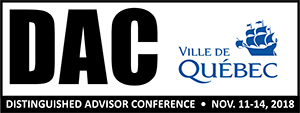
An Advisor’s Duty: Protecting Seniors and Supporting Caregivers
Resources for family caregivers in Canada are improving— a necessity, considering three in ten people over the age of fifteen have taken on the responsibility of caring for a family member, according to a 2012 Statistics Canada report.* However, the Employment Insurance Family Caregiver Benefit and the Canada Caregiver Credit continue to be underutilized and poorly understood.
Helping caregivers access these financial resources is a place for tax and financial advisors to start – but there’s opportunity to do even more. Adopting a holistic, client-centric approach demands and delivers so much more than just financial advice to your senior clients and their families.
Dedicated caregivers support millions of seniors in Canada, and it’s important to remember that they need support themselves. Tax and financial advisors already entrenched in their lives can become the trusted resource families need while navigating the tough decisions and responsibilities that come with caring for a loved one. It can, in fact, be an advisor’s ethical and regulatory duty to help shepherd clients into and through their senior years.
navigating the tough decisions and responsibilities that come with caring for a loved one. It can, in fact, be an advisor’s ethical and regulatory duty to help shepherd clients into and through their senior years.
As a tax or financial advisor involved in offering intergenerational counsel to a family of stakeholders, you are likely already involved in managing retirement income streams, and assisting with caregiver credit claims. In fact, outside of the medical field, you may be the professional with whom caregivers have the first, only or most frequent point of contact, uniquely positioning you to become a trusted resource, help them access other professional and support networks, and alleviate some of the heavy responsibility they carry.
At this year’s Distinguished Advisor Conference (DAC), Alexis Verganelakis, VP Regional Sales Franklin Templeton, will explore the opportunity for you to add immense value to your senior clients and their caregivers, in a session on Ethics in Aging: Your Duty in Supporting Your Elderly Client.
It’s no secret that the Canadian population is facing a massive demographic shift and clients who are aging will face countless financial, physical and mental challenges that will be difficult and often heartbreaking to deal with, for the entire family and for the primary caregiver in particular. This presentation puts an emphasis on the advisor’s role as a growing segment of their clients age and their needs and financial situations change, sometimes in a significant way.
Advisors, too, face a myriad challenges with their aging clients, including best interest duties and transitions of relationships to substitute decision-makers. In addition, longer lifespans can take a toll on financial resources, stretching retirement income streams to their limit, and leaving family caregivers struggling to provide long-term support for their loved ones. It’s also critical for advisors to know the signs of elder exploitation so they can help protect their vulnerable clients and take action if they encounter suspected cases of abuse.
While family members often take on the responsibilities – financially, logistically and emotionally – to ensure that their parents and grandparents are properly cared for later in life, having the support of savvy professionals to advise and assist them can alleviate some of the stress that comes with such significant responsibility.
Stay tuned to KBR for additional DAC speaker features! Read more about the importance of other sessions featured at DAC, and their connection to today’s news highlights, in our previous features:
- Helene Chatelain: “The Secret to Engaging Millennials”
- Caroline Ouellette: “Thought Leadership from on Olympian: Diversity and Inclusion in the Workplace”
- Dean Smith: “Know Your Cross-Border Client: Avoiding Tax Consequences and Liabilities”
- Dr. Michael Geist: “Cyber-Attacks Increase 80%: Dr. Michael Geist Addresses the Risk at DAC”
- Dr. Jack Mintz: “DAC 2018: Dr. Jack Mintz to Address Canada’s Competitiveness”
- Sophie Orru: “Thank You to Our DAC Partner: Franklin Templeton Investments”
- Shoshana Green: “Canada’s Economic Future: Immigration is Essential for Growth”
Sign up for unique networking experiences and activities offered at DAC online, too!
Additional educational resources:
In addition to attending DAC this year, consider enrolling in the Real Wealth Manager Program, and further your skills to enhance your client-centric service offerings.
2012 Statistics Canada report.*
COPYRIGHT OWNED BY KNOWLEDGE BUREAU INC., 2018.
UNAUTHORIZED REPRODUCTION, IN WHOLE OR IN PART, IS PROHIBITED.





